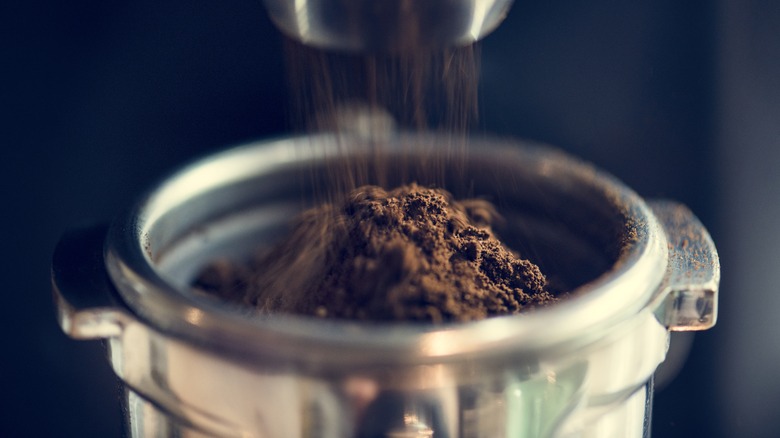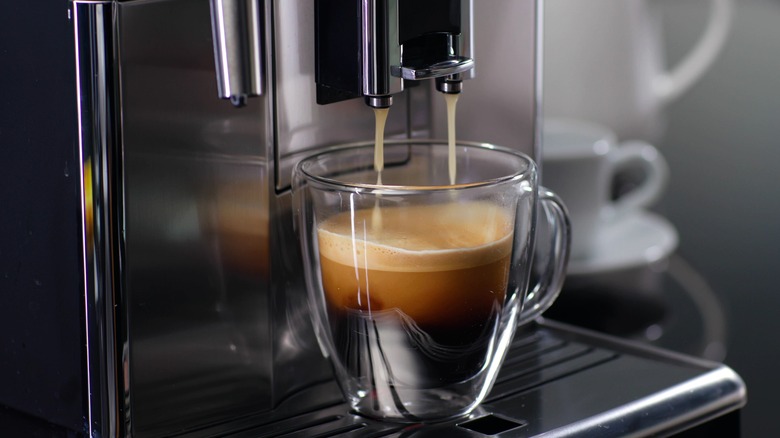You Should Be Careful Not To Grind Espresso Too Finely. Here's Why
There are a lot of rules when it comes to coffee and espresso, and as annoying as it is to learn them, things like choosing between fine and coarse grinds are going to make a difference. It's easy to get overwhelmed by the choices you need to make when it comes to making coffee at home. Coffee obsessives' quest for the perfect cup has multiplied the number of coffee-making instruments and tools available and hit the point where people can tell you the perfect 10-degree range in temperature you need to hit. It's all so much that any person interested in improving their home coffee would be forgiven for throwing their hands up in confusion and heading down to their local coffee shop instead.
You don't need to despair though because grinds are pretty intuitive to understand and easy to remember. Grinds range from coarse, which produces larger bits of coffee that work better with longer brews like cold brew and French press, to fine, which is better for methods like pour over where you want the water moving through the grinds quickly. If you want to get your grind just right, it's better to get a grinder yourself, so you can customize things for your preferred style. Espresso falls on the fine end of the ground scale, but that doesn't mean you can go all the way, as grinding too finely can actually cause problems in the brewing process. (This is one of several mistakes you can make with at-home espresso.)
Overly fine coffee grinds can block up your brew
When grinding and making espresso, it's important to remember that what makes it different from coffee isn't the beans, it's the way it's made, specifically the pressure and the grind. It's all about using a lot of pressure to push water through fine grounds, which creates a very strong, concentrated drink. So getting the grind right is key to making espresso in any form, not just making it well. Espresso needs fine ground because the smaller the coffee particles, the more coffee flavor can be extracted during the short brewing period, resulting in that classic, powerful espresso flavor.
You want to be careful about going too fine with your grind because of how water flows through the grounds. When you make espresso you tamp it down, but the water still needs some space to get through. If your coffee is ground too fine, the tamped grounds can pack too tightly together, and the pressure in your machine may not be able to push water through, resulting in either a backed-up machine or overly extracted espresso with a bitter flavor.
On a grinder, you should stick to the smaller end of the "fine" measurements, but avoid "extra fine." If your grinds have the consistency of flour, you've probably gone too far. It may take a few experiments to get your grind size perfect, but stick to fine and you should end up with a well-made espresso.

